This website may contain affiliate links and advertising so that we can provide recipes to you. Read my disclosure policy.
Lion House Rolls are the best dinner rolls for holiday meals or any occasion. These buttery, super-soft rolls are the perfect vehicle for soaking up delicious soups, sauces, and gravies.
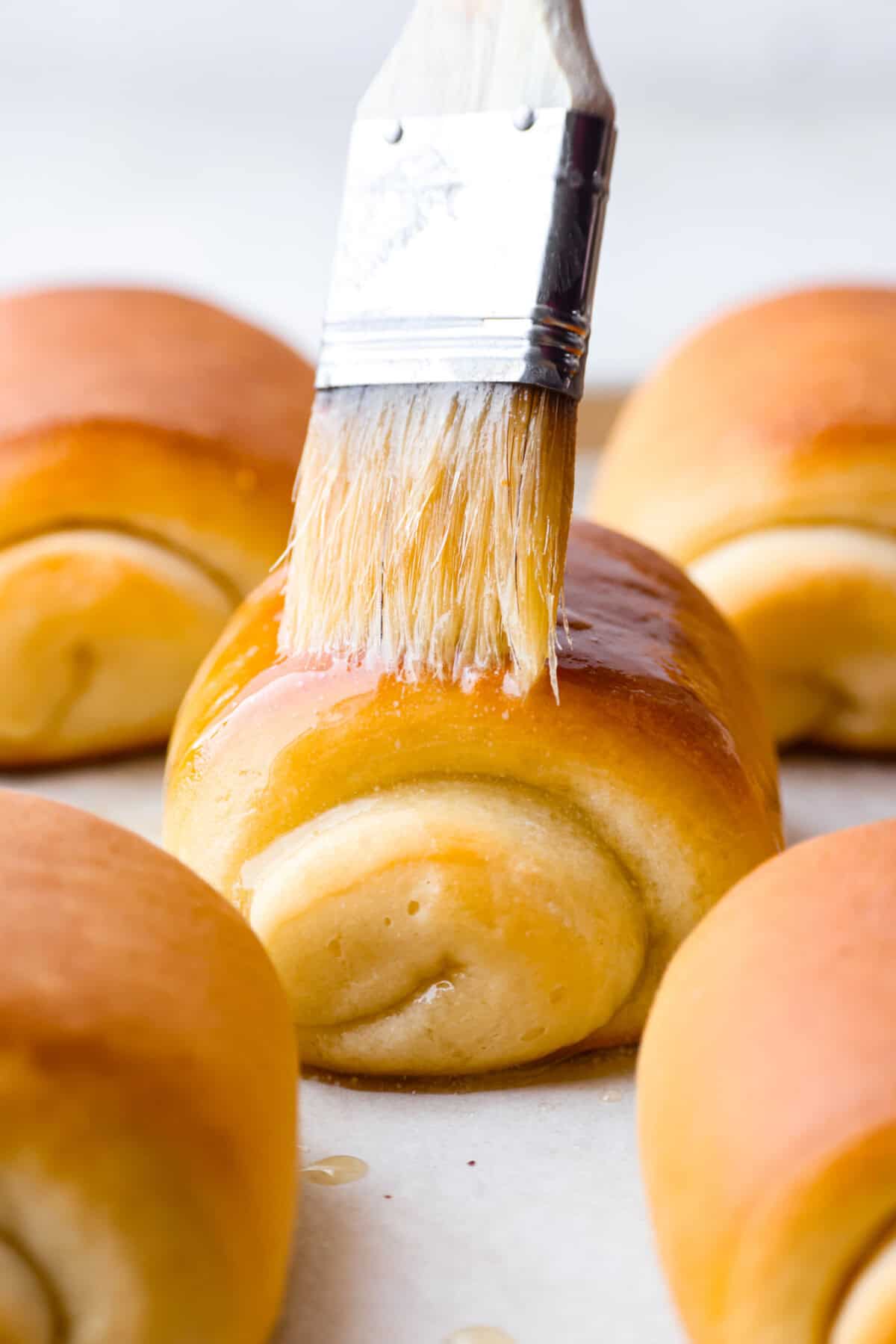
Reasons You’ll Love This Recipe
- Flavor: Lion House Rolls are some of the most iconic dinner rolls made legendary by the Lion House Pantry Restaurant in Salt Lake City, Utah. They are soft, buttery, melt-in-your-mouth delicious.
- Dinner Rolls: Dinner rolls are sometimes an afterthought but to me good dinner rolls can really add to the meal. Try these Parker House Rolls or these Texas Roadhouse Rolls.
Homemade Lion House Rolls Ingredients
The foundation of these rolls consists of flour, milk, and butter, creating a soft, buttery texture and rich flavor. These ingredients are likely staples in your pantry. For precise measurements, refer to the bottom of the post.
- Whole Milk: Used to activate the yeast and also a little bit in the egg wash. Whole milk is preferred, but you can use 2% milk.
- Butter: Use softened unsalted butter for the dough and melted salted butter to brush on the rolls after baking.
- Granulated Sugar: Feeds the yeast and adds sweetness to the dough. If you prefer your dinner rolls to be saltier, you can reduce the amount of sugar.
- Active dry yeast: Makes the dough rise. You could also use the same amount of instant yeast, 2 1/4 teaspoons.
- Egg: Used as a binding agent to give the rolls structure, moisture, and a rich depth of flavor.
- Flour: All-purpose flour is fine in this recipe.
- Salt: Enhances the flavors.
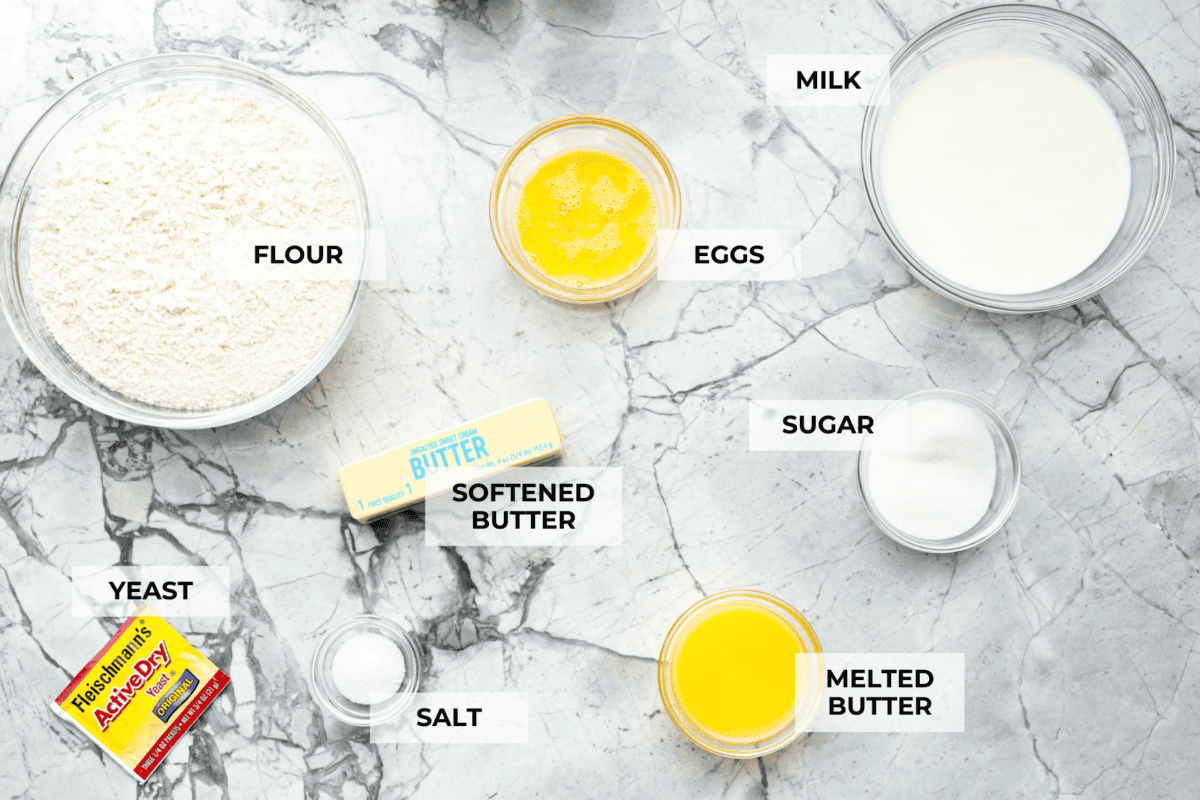



How to Make Lion House Rolls
These classic dinner rolls are simple to make, with easy steps that deliver bakery-quality results. Whether served fresh from the oven or saved for later, they are sure to become a family favorite.
Dough
- Combine: Add the warmed milk, yeast, and sugar to the bowl of a stand mixer, cover it with a towel, and let it rest for about 5 minutes. The mixture should become frothy.
- Mix: When the yeast is ready, add 1/2 cup of softened butter, egg, 3 cups of flour, and salt. Fit the mixer with the dough hook attachment and mix at medium-low speed until the dough begins to come together.
- Mix: As the dough comes together, you may need to add more flour. Start with a few tablespoons at a time until the dough begins to pull away from the bowl. When the dough is formed, increase medium speed and mix for an additional 3-4 minutes.
- Let Rise: Lightly oil a large bowl with butter or vegetable oil. Add the dough to the bowl, cover, and let it rest for about an hour until it doubles in size. While the dough rests, line a baking sheet with parchment paper and prepare a clean work surface where the dough can be rolled out.
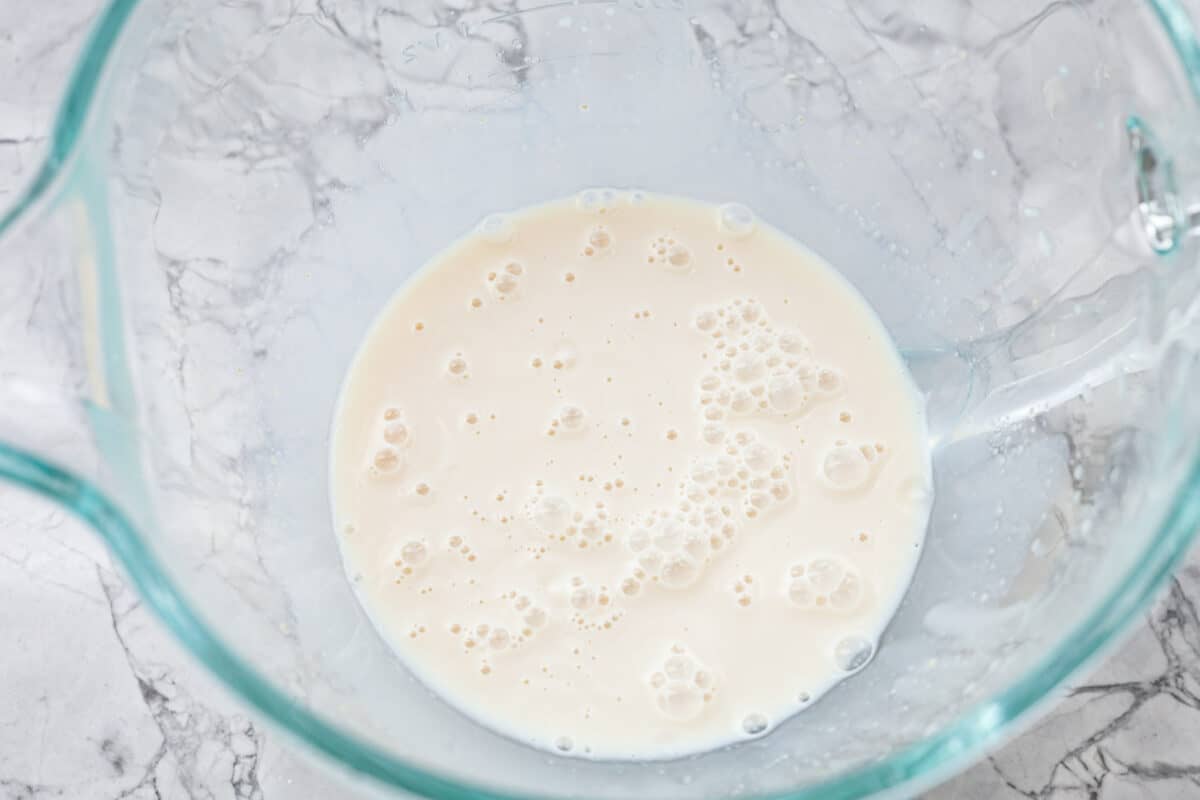



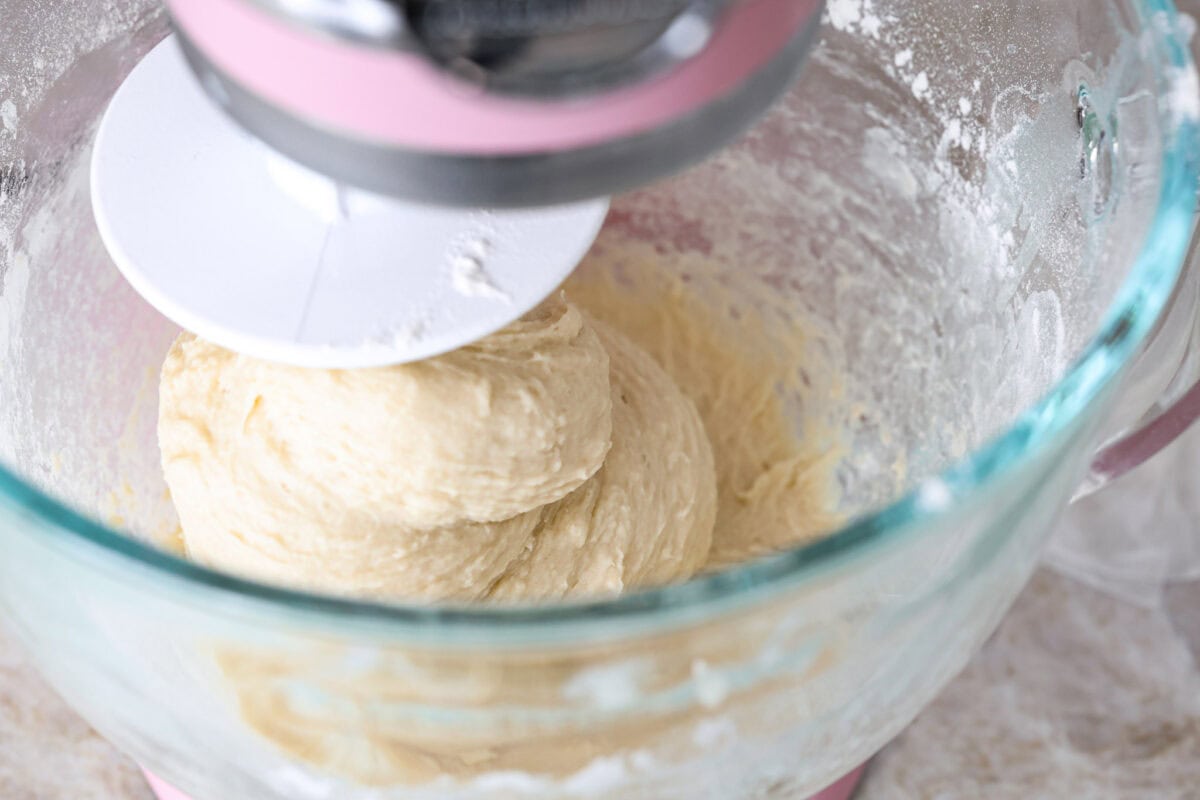



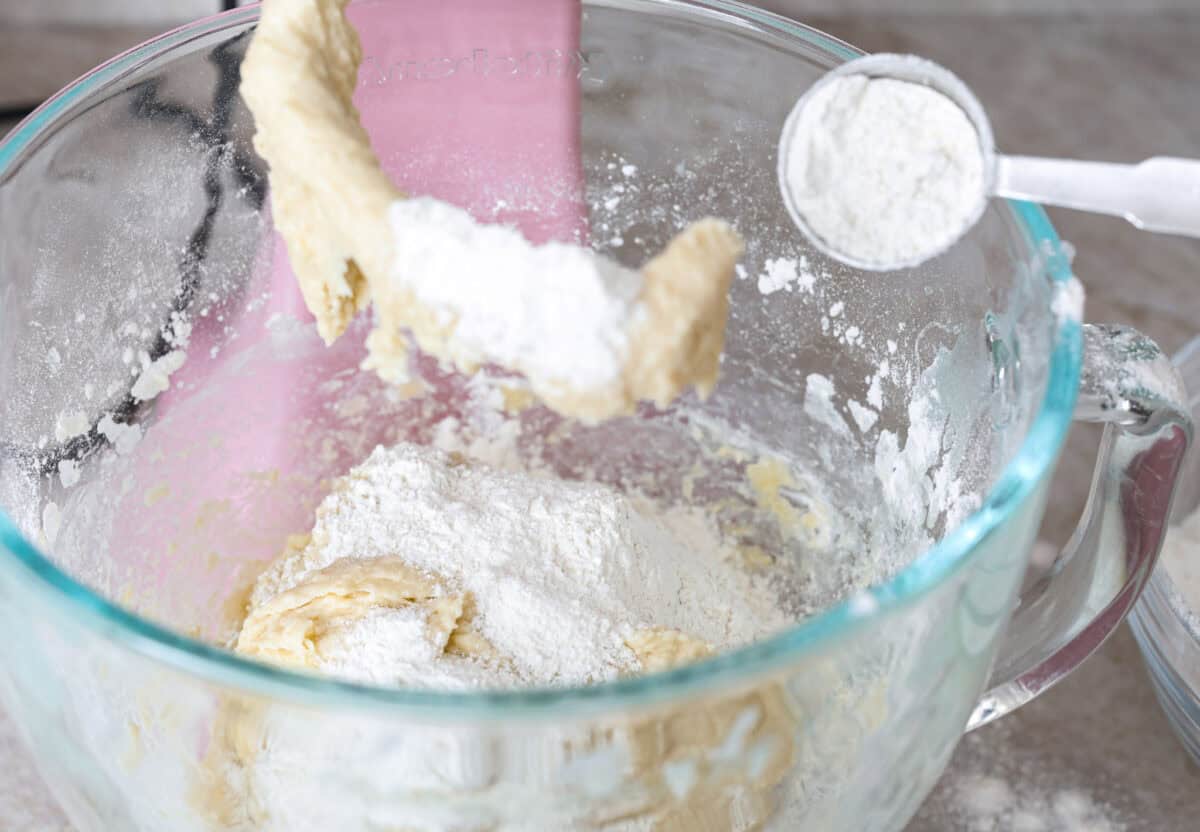



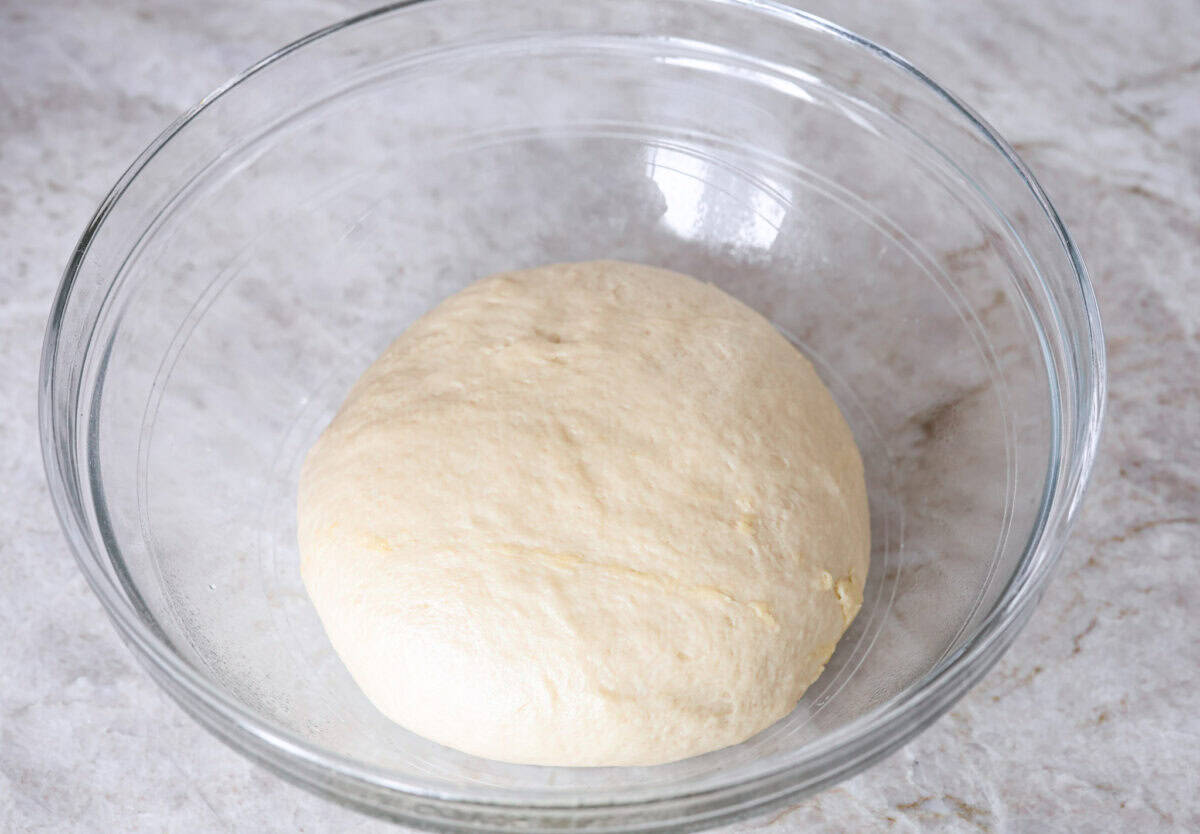



Rolls
- Roll: When the Lion House roll dough is doubled in size, dump it onto a lightly floured surface. Roll the dough into a 12×15-inch rectangle. Brush the melted butter onto the surface of the dough slab.
- Cut: Cut the slab into four sections, in half vertically and then horizontally. Then, cut each of these quarters into three rectangles. They should be about 2 ½x6-inches.
- Shape: Roll the little rectangles up and place them, seam side down, on the parchment-lined baking sheet about 2 inches apart. Cover and let the rolls rise for 45 minutes to 1 hour. The rolls should be larger and fluffy but not touching. While the rolls rise, preheat the oven to 375 degrees Fahrenheit. When the rolls are ready, bake them for 15-20 minutes until they are golden brown. Remove the rolls from the oven and brush the tops with additional butter.
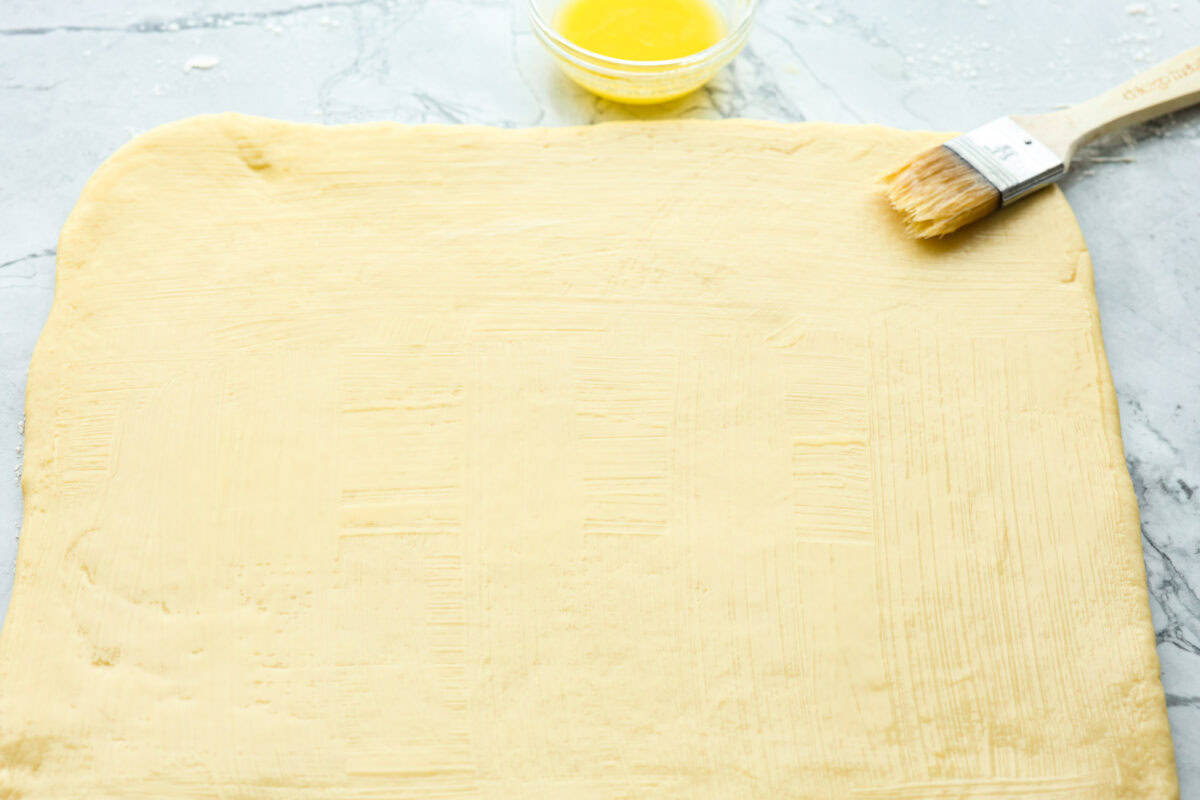



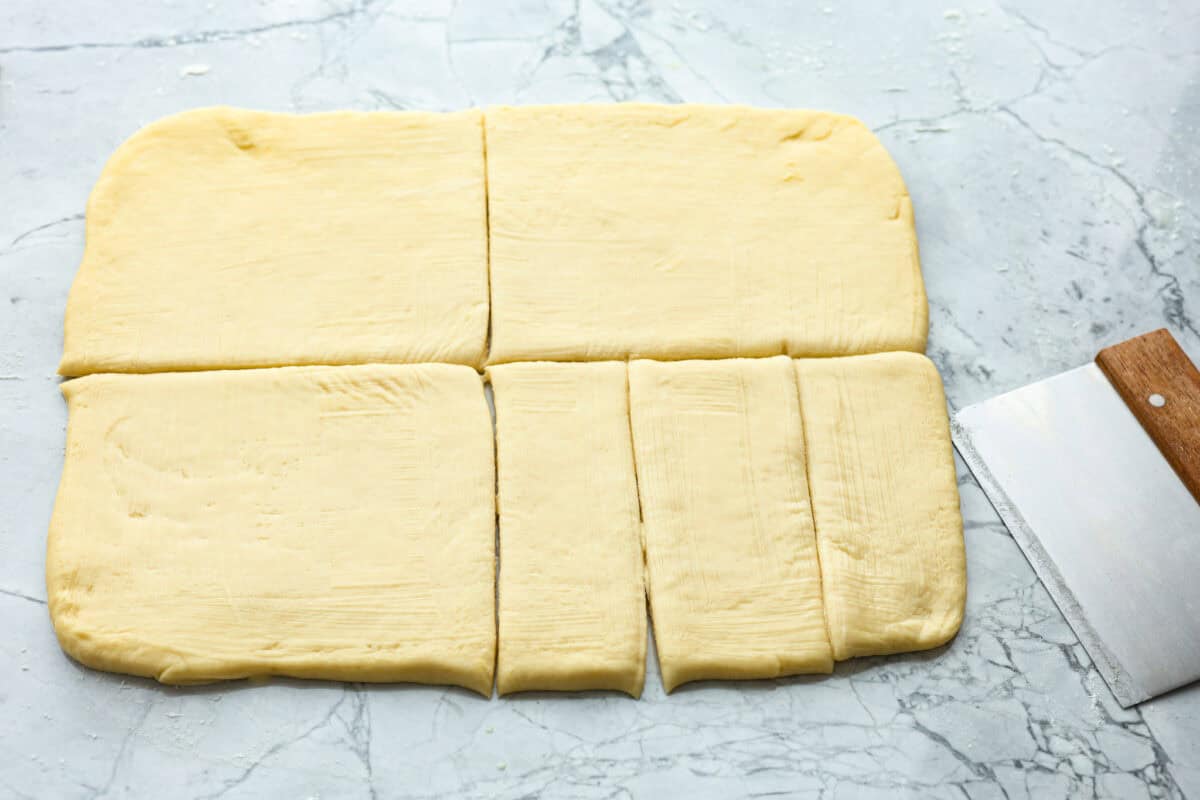



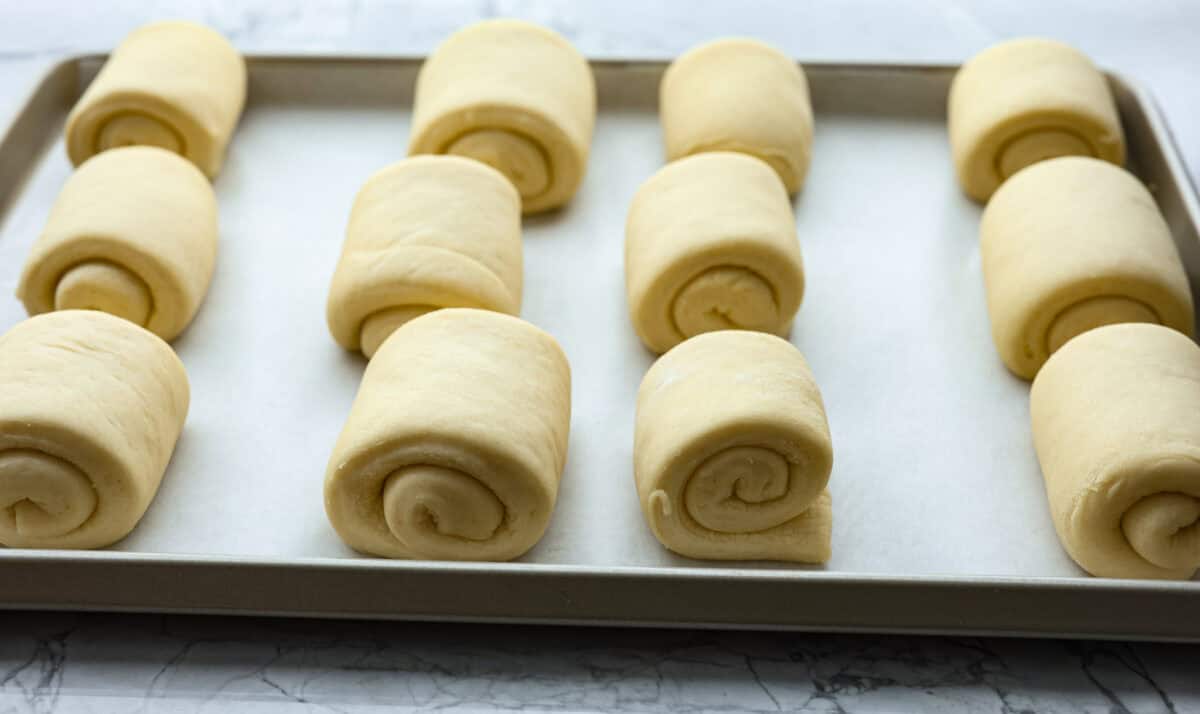



Lion House Rolls Tips and Variations
For those looking to customize their Lion House Rolls, there are plenty of tips and variations to explore. Read on for suggestions to elevate your baking and make these rolls uniquely yours!
- Yeast: I use active dry yeast in my recipe, but you can use instant yeast. If you use instant yeast you don’t need to activate it, skip the first step and just add all the ingredients to the mixer and mix.
- Flour: Take care not to add too much flour, the dough needs to be soft, it should pull away from the mixer and be easy to work with but not dry or tough.
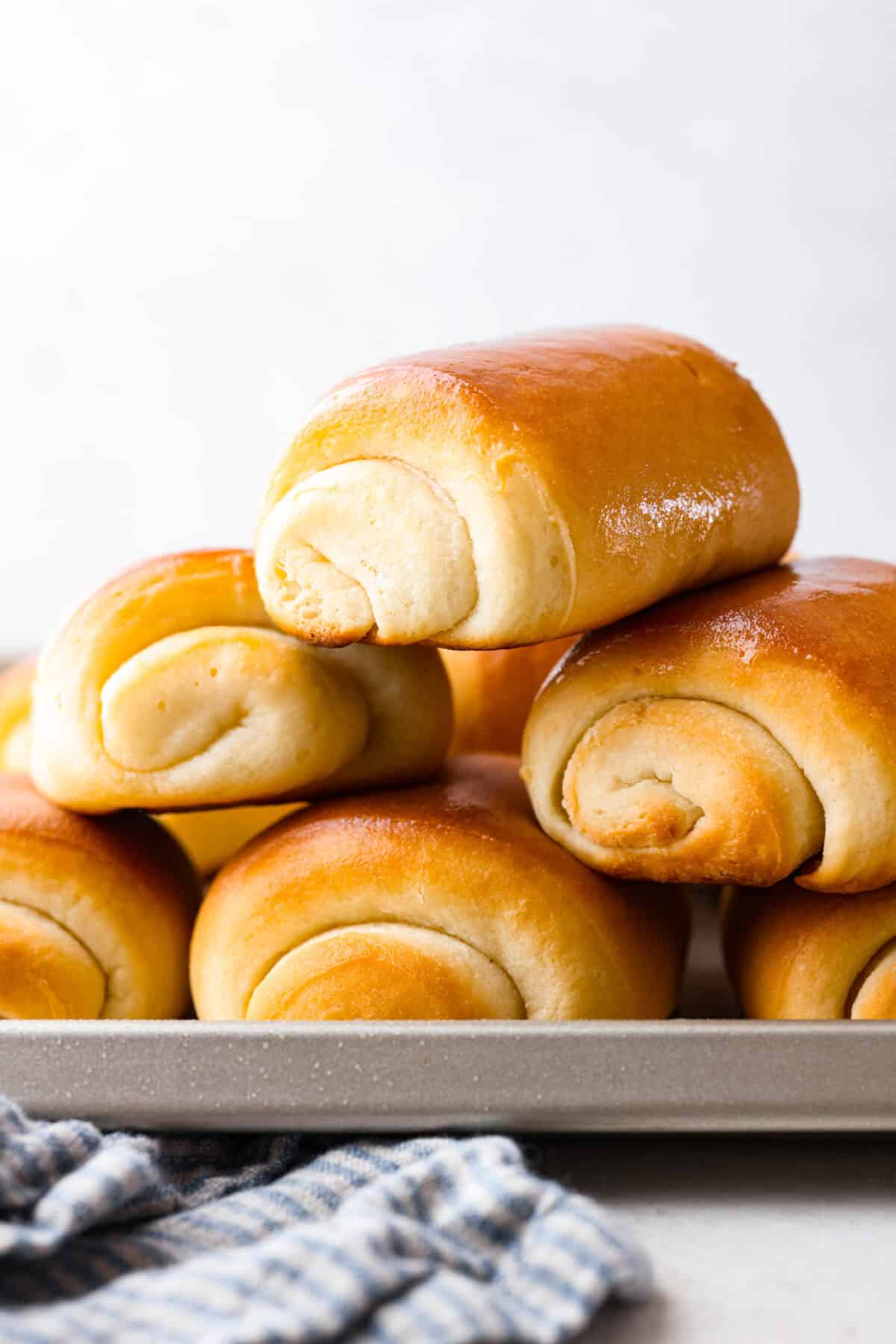



Make Ahead and Storing Dinner Rolls
Here are some helpful suggestions for storing, preparing, and freezing Lion House Rolls to keep them fresh and convenient for later use.
- Storage: Store completely cooled rolls in an airtight container at room temperature for up to 3 days, in the fridge for up to a week, or in the freezer for up to 2 months.
- Freeze: You can assemble the rolls, place them on the baking sheet, and freeze them. Once the rolls are frozen transfer them to a Ziploc bag and store the un-baked rolls for up to 3 months.
- Bake from Frozen: To thaw the frozen rolls, remove them from the freezer, place them on a parchment-lined baking sheet at room temperature, cover and let them thaw, and then rise to nearly doubled in size. Bake like normal.
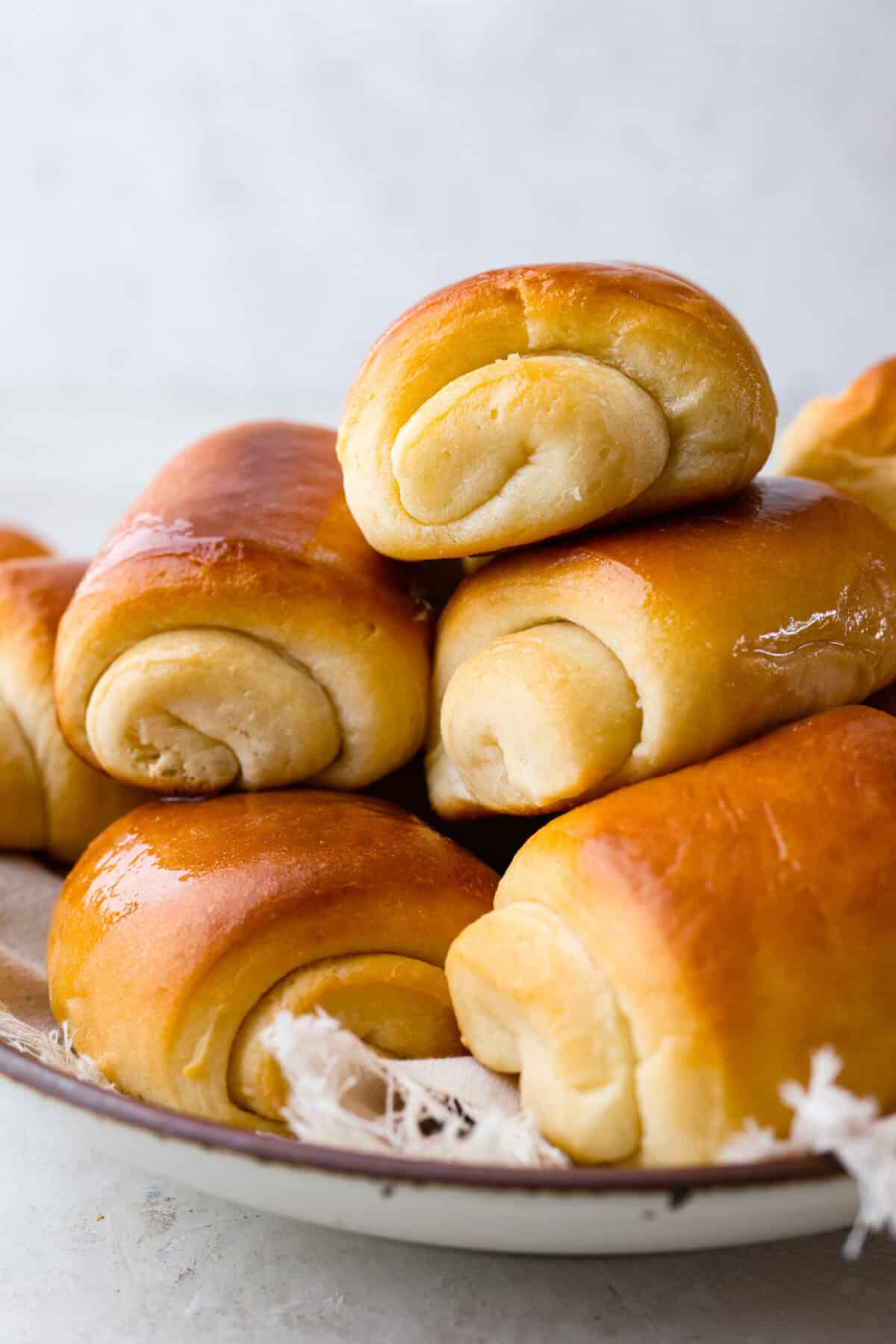



More Dinner Roll Recipes to Try
Dinner rolls make my family happy. Everyone can always have a roll if they don’t like what you have made for the main. Here are a few of my favorite recipes for you to try.
Pin this now to find it later
Pin It
-
Add the warmed milk, yeast, and sugar to the bowl of a stand mixer, cover with a towel, and let it rest for about 5 minutes, the mixture should become frothy.
-
When the yeast is ready, add 1/2 cup of softened butter, egg, 3 cups of flour, and salt. Fit the mixer with the dough hook attachment and mix at medium-low speed until the dough begins to come together.
-
As the dough comes together, you may need to add more flour; start with a few tablespoons at a time until the dough begins to pull away from the bowl. When the dough is formed, increase the speed to medium and mix for an additional 3-4 minutes.
-
Lightly oil a large bowl with butter or vegetable oil. Add the dough to the bowl, cover, and let it rest for about an hour until it doubles in size. While the dough rests, line a baking sheet with parchment paper and prepare a clean work surface where the dough can be rolled out.
-
When the dough is doubled in size, dump it onto a lightly floured surface. Roll the dough into a 12×15-inch rectangle. Brush the melted butter onto the surface of the dough slab.
-
Cut the slab into four sections, in half vertically and then horizontally. Then, cut each of these quarters into three rectangles. They should be about 2 ½x6-inches.
-
Roll the little rectangles up and place them, seam side down, on the parchment-lined baking sheet about 2 inches apart. Cover and let the rolls rise for 45minutes-1 hour. The rolls should be larger and fluffy but not touching.
-
While the rolls rise, preheat the oven to 375 degrees Fahrenheit. When the rolls are ready, bake them for 15-20 minutes until they are golden brown. Remove the rolls from the oven and brush the tops with additional butter.
Updated December 16, 2024
Calories: 222kcalCarbohydrates: 29gProtein: 4gFat: 10gSaturated Fat: 6gPolyunsaturated Fat: 0.5gMonounsaturated Fat: 2gTrans Fat: 0.4gCholesterol: 26mgSodium: 310mgPotassium: 75mgFiber: 1gSugar: 5gVitamin A: 309IUCalcium: 39mgIron: 1mg
Nutrition information is automatically calculated, so should only be used as an approximation.



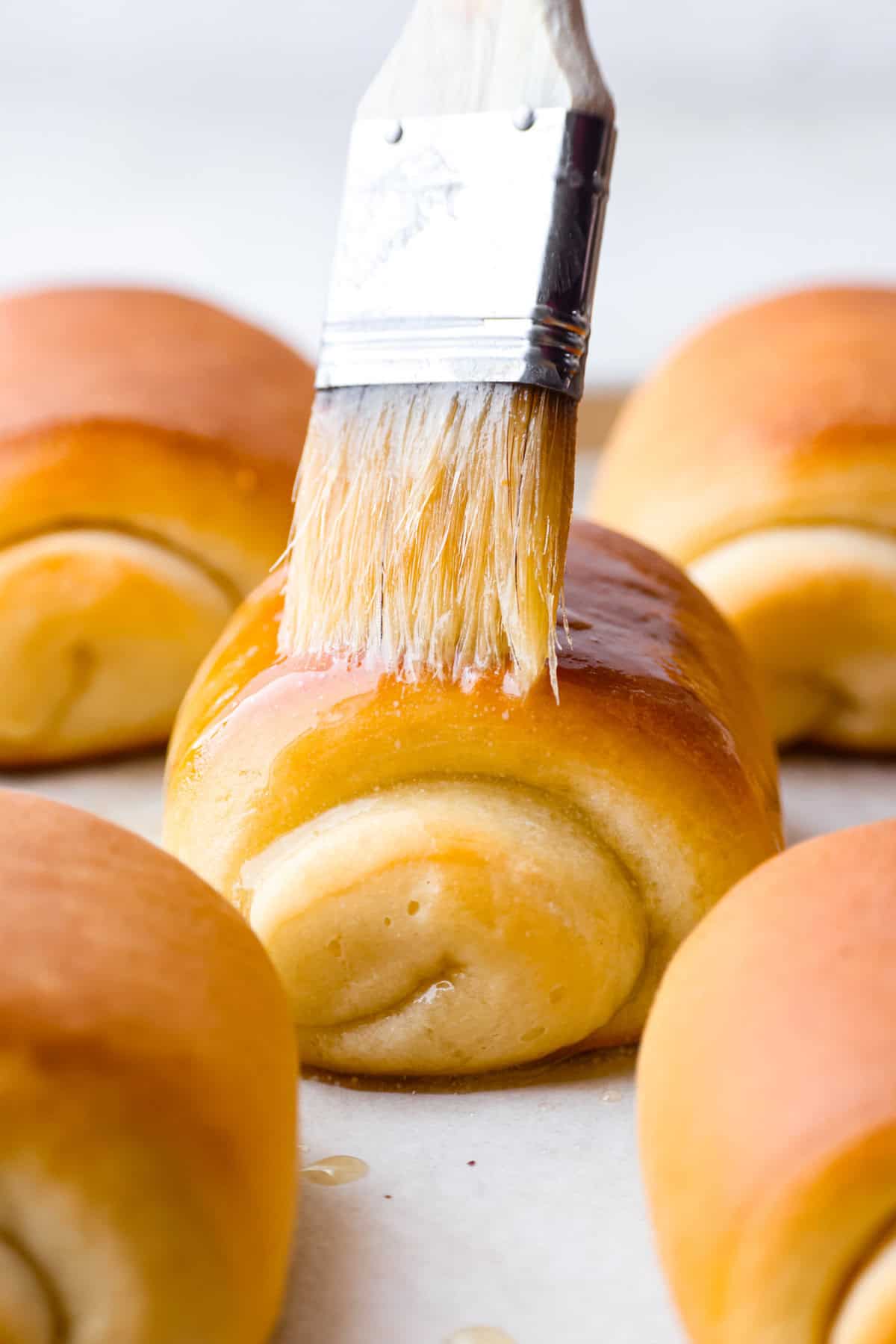
:max_bytes(150000):strip_icc()/A-Viennese-Farmer-Says-Snails-Are-the-Protein-of-the-Future-FT-BLOG0125-03-695d8dd1b8bc44d7b00811263c20d408.jpg?w=238&resize=238,178&ssl=1)
:max_bytes(150000):strip_icc()/20241212-SEA-Tanghulu-MelatiCitrawireja-Hero1-06-fea932f1bfe84b149a4b5e47f7734bde.jpg?w=238&resize=238,178&ssl=1)
:max_bytes(150000):strip_icc()/broccoli-cauliflower-and-cheddar-soup-FT-RECIPE0125-020f7b60def34108bf4635115ade1ea0.jpeg?w=238&resize=238,178&ssl=1)



:max_bytes(150000):strip_icc()/A-Viennese-Farmer-Says-Snails-Are-the-Protein-of-the-Future-FT-BLOG0125-03-695d8dd1b8bc44d7b00811263c20d408.jpg?w=100&resize=100,75&ssl=1)

